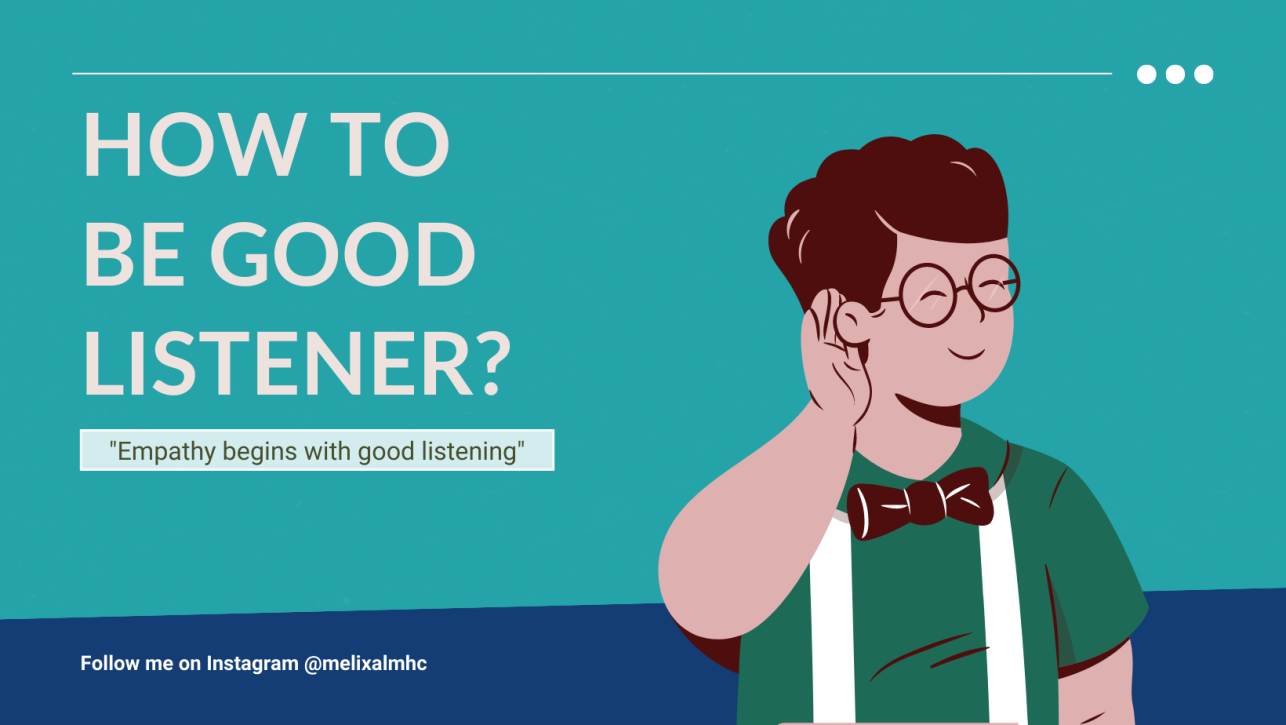And Why Listening Is Not Something Passive
We all know how important communication is in our lives, but we often forget that it’s not just about sharing our thoughts; it’s also about truly understanding what others have to say. So, let’s get right into it!
Why Is Listening Important?
Think about a conversation as a two-piece puzzle: sharing and listening. While expressing our ideas is crucial, listening to others is equally vital, as is validating feelings and experiences of others. Everyone wants to be heard, and that’s where being a good listener comes in. Think about how you feel when you walk away from a conversation feeling unheard, ask yourself, “is that how I want someone in conversation with me to walk away feeling?
There are factors that contribute to how we show up in each and every communication process we engage in. Sometimes, our emotions, past experiences, nervous system, or state of mind can affect how we communicate, and we may not even realize how we’re being perceived by the listener. This is why consent is so important in communication, it allows the individuals to assess whether or not they have the bandwidth to engage in sharing and listening, and if they do not, to communicate that instead. Without mutual understanding, we can’t expect a positive outcome from any conversation.
Becoming A Good Listener
Now that we know the importance of listening, let’s explore some basics to become better listeners:
Being An Empath: The key to being a good listener is empathy, and is two-fold. The ability to notice, identify, and name the emotions you observe in the speaker and, the ability to relate to what the speaker has or is experiencing emotionally. When you display empathy, it motivates both the speaker to express themselves honestly and the listener to understand the nuances of the conversation. Empathy makes the process easier and more enjoyable, leading to better outcomes for both parties.
Paying Attention To Subconscious Indicators: Body language, intonation, and choice of words can reveal a lot about a person’s thoughts and feelings. Using your eyes and ears to notice any incongruences between how the speaker reports feeling, and what they demonstrate they are feeling. For example, crossed arms or short, vague sentences may indicate discomfort. Not everyone is skilled or feels comfortable with healthy, assertive communication. Paying attention to these subtle cues helps us understand the speaker better.
Asking Questions: Asking questions shows interest and encourages the speaker to share more. It also keeps our minds engaged and helps us truly comprehend what the other person is saying. But remember, asking questions shouldn’t be just a ploy to wait for our turn to speak. It should be done with genuine curiosity and consideration for the other person’s needs. Questions can also be used to clarify that the message delivered was the message intended by the speaker. Questions minimize the occurrences of misunderstandings.
Being a good listener is not just about waiting for our chance to talk or giving advice. In fact, when you consent to the role of listener, explore what the speaker’s needs are, do they need support, do they want advice, or both? Sometimes, it’s about being there for someone to vent and share their feelings without judgment or interruption. Other times, it’s a request for the listener’s insights and experiences. Knowing what kind of listener the speaker needs allows you to further fulfill their need to be heard. It’s a delicate balance, but with practice, we can master the art of listening.
Just like we continuously improve our speaking skills throughout life, we can also enhance our ability to listen. As we become better listeners, we strengthen our understanding of others’ needs, which, in turn, helps us become better conversationalists.
Melixa Carbonell, MA, LMHC, ADHD-CCSP, NCC is a clinical mental health provider with a private practice specializing in anxiety, ADHD, and life changes. Call or email for a free 15-minute consultation at 321.287.6919 or at [email protected]
